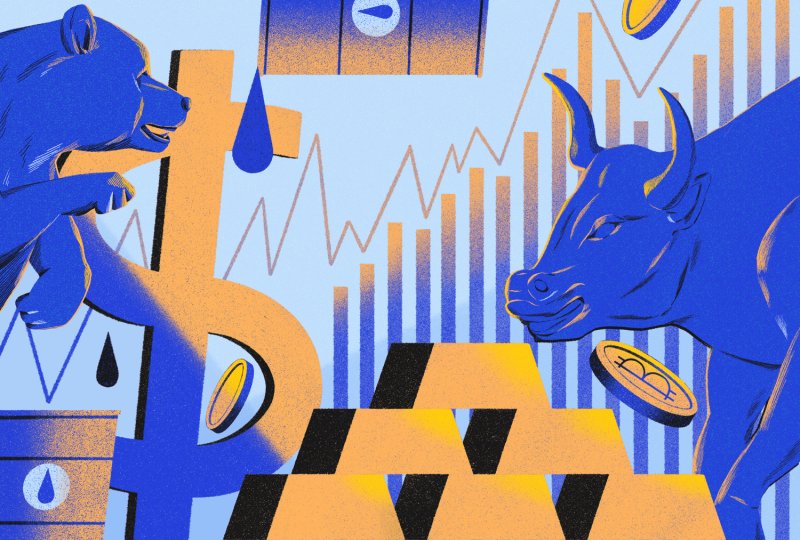The three most important factors when choosing a bank for checking and savings accounts are the type of bank, the interest rates it pays, the fees it charges, and the extra features it offers. Different banks offer widely different levels of service, charge different levels of fees, and will pay you significantly different amounts of interest on your money. This means that finding the best bank or the best online bank for you is rarely a one-off process. You may have to choose a new bank several times throughout your lifetime, too, as your financial and investment goals evolve. The good news is that there is no limit to the number of bank accounts you can hold, nor how frequently you switch.
Key Takeaways
- Three main types of financial institutions can reasonably be referred to as a banks: traditional brick-and-mortar banks, online banks, and credit unions.
- Take a look beyond all the marketing hype, and you’ll see that most bank accounts can be distinguished by the fees they charge and the interest rates they pay.
- Peace of mind is arguably the most important service offered by any bank and should be an important part of your choice.
- As you evaluate your bank account, understand that you can have accounts at different banks at different times.
- Also, in many cases, it may be free to very low cost to close an account if you are no longer happy with your bank.

Types of Banks
The first and most fundamental factor in choosing a bank is the type of institution that is right for you. There are at least three distinct types of financial institutions that can reasonably be referred to as a bank, each of them offering a unique set of advantages and disadvantages.
Traditional Banks
Traditional banks are what most people think of when they think of a bank. These banks offer services to their customers largely through a network of brick-and-mortar offices and provide ATMs to both their own customers and those of other banks. Many have also started offering online banking services for paying bills and making deposits.
Although these banks have been around the longest, today there are fewer reasons to choose a traditional bank over its online competitors or credit unions. As we’ll see, both of these institutions offer lower fees than traditional banks do.
That said, you may prefer to do your banking in person. If you have a question or a problem, you can go into your local branch and talk to someone about it. This could make a traditional bank the right choice for you. But it’s still worthwhile checking out the other options that are available to you.
If you choose a traditional or online bank, be sure to select one that is insured by the Federal Deposit Insurance Corporation (FDIC), which covers $250,000 for each depositor, per account category.
Online Banks
Online banks were relatively rare 20 years ago, but their popularity has grown over time, making them direct competitors for traditional banks today. Because online banks have fewer or no physical branches, their overhead costs are far lower than those of traditional banks, and that means their fees are typically far lower, too.
That said, many people find the customer services offered by purely online banks frustrating. The industry is aware of this. The best online banks now offer extensive customer support options, but you still won’t be able to walk into a branch to talk to a bank employee in person.
In recent years, the dividing line between online banks and traditional banks has become increasingly blurred, as the digital services and tools offered by the latter have become more advanced. This means that it may be possible to enjoy the advantages of a traditional branch while still accessing the convenience of digital banking.
Credit Unions
Credit unions are often overlooked as an alternative to traditional and online banks, but they have advantages that can make them a good choice.
First, credit unions are not-for-profit financial cooperatives. That means they are member-owned, so profits are returned to their members via lower fees and higher interest rates on deposit accounts. By contrast, publicly owned traditional banks must meet revenue goals and are beholden to shareholders.
Second, most credit unions maintain genuine relationships with their local communities. If you want a bank that gives something back to your community, a credit union may be the natural choice for you.
However, credit unions can have fairly stringent rules for members to access services, and not all of them offer features like online banking. This may make one a less-than-optimal choice for a checking account that you need to access and work with on a regular basis.
If you opt to bank with a credit union, make sure that it has been insured by the National Credit Union Administration (NCUA). Like the FDIC, it insures up to $250,000 for each depositor annually.
Fees and Interest Rates
The next factor to consider in choosing where to bank is an institution’s fees and the interest rates it offers. Most people will have two basic accounts: a checking account and a savings account. The features you need for each type of account will vary, and very often it makes sense to have these accounts at different institutions.
Banking Fees
Most banks will charge a monthly fee to maintain a checking account, but these fees can vary widely. And a bank may waive or lower them if you meet certain criteria, such as meeting and maintaining a minimum balance requirement or setting up direct deposit for your paychecks.
To keep these fees to a minimum, it's important to understand what a bank will actually charge you for using a checking account. Ask about its common charges, which may include:
- Monthly maintenance fees
- Overdraft fees
- Statement fees
- Stop payment fees
- Returned check fees
- Wire transfer fees
- Cashier’s check fees
- Certified check fees
- Out-of-network ATM fees
Fees are by far the largest distinguishing factor among checking accounts. All else being equal, you should choose the checking account with the lowest charges.
Interest Rates
For your savings account, look for a different set of features. You shouldn't need to access a savings account as frequently as you do a checking account, so it’s unlikely that you will need app or online banking services. As long as you don't make frequent withdrawals, most savings accounts don’t come with high fees.
Instead, the primary way that these deposit accounts differ is in the interest rates they pay. These can vary widely, and the best rates are often those offered by credit unions or online banks. Shop around to find the best interest rate for your savings.
Extra Features
The two factors we’ve considered so far—the type of institution you choose and the amount it will cost you in fees or lost interest—are the most fundamental aspects of choosing a bank. However, most banks will also offer a range of other services, discounts, or features that may be crucial for you.
Because everyone’s needs are different, take some time to think about how you use the accounts you currently have and where you are losing money in fees or time. Then look for a bank that's a better fit. Important factors might include:
- Online and app-based banking. Most banks now offer these options. If you are using your account a lot—particularly for setting up new payments or managing standing orders—a full-featured online service can save you a lot of time.
- Local branches and ATMs. Even if you deal with your bank primarily online, there may still be times when it's easier to visit a branch. For many people, having a local bank branch—at least for their checking account—is a must. Similarly, a network of ATM machines may be important to you—say, if you travel frequently and need ready access to cash while on the road.
- Security. Though most banks are insured against loss, they still vary when it comes to the level of security they offer for online services. A quick scan of the news to see which banks have recently experienced security breaches may help you rule out a bank in this regard.
This last point is related to another—that ultimately, the bank you choose should be one you trust. Many people still make their bank decision based on the company that their parents bank with, or merely because they trust the name and reputation of a large national bank. There is nothing wrong with that—peace of mind is arguably the most important service offered by any bank and should be part of your decision-making process.
What Are the Different Types of Banks Available?
There are various types of banks, including commercial banks, credit unions, online banks, and investment banks. The best type for you depends on factors like your banking needs, preferences, and financial goals. Commercial banks offer a wide range of services, credit unions focus on community and member benefits, online banks provide convenience, and investment banks cater to more complex financial transactions.
Why Is It Important to Assess a Bank's Reputation?
Assessing a bank's reputation and financial stability is crucial. Look for information on their track record, customer reviews, ratings from reputable agencies, and financial statements. Consider factors like the bank's longevity, market presence, profitability, and capital adequacy ratios to gauge its stability and ability to meet its financial obligations.
Do All Banks Offer Online and Mobile Banking Services?
Online and mobile banking services can simplify your banking experience, though not all banks may offer such solutions. Check if the bank provides online capabilities or mobile apps. This limitation may be especially true for smaller or more rural banks that have not yet invested in technological infrastructure.
What Fees Can I Expect When Opening an Account?
Understanding the fee structure is essential to avoid unexpected charges. Inquire about fees for ATM withdrawals, account maintenance, paper statements, overdrafts, and wire transfers. Compare fee schedules among different banks to find the most cost-effective option that aligns with your anticipated banking activities.
The Bottom Line
A good bank is one that gives you easy access to your money, doesn't charge exorbitant fees, offers good interest rates, have online and app-based banking services, provides excellent customer service, and is trustworthy with your money.
Make a list, rank some options against these criteria, and see which bank or credit union comes out on top. Just remember. You can always change your mind later or open a second account if your first choice ends up not being optimal for you.
Article Sources Investopedia requires writers to use primary sources to support their work. These include white papers, government data, original reporting, and interviews with industry experts. We also reference original research from other reputable publishers where appropriate. You can learn more about the standards we follow in producing accurate, unbiased content in our editorial policy.
-
Federal Deposit Insurance Corporation. "Deposit Insurance FAQs."
-
National Credit Union Administration. "Share Insurance Fund Overview."
Open a New Bank Account Advertiser Disclosure × The offers that appear in this table are from partnerships from which Investopedia receives compensation. This compensation may impact how and where listings appear. Investopedia does not include all offers available in the marketplace. Open a New Bank Account Advertiser Disclosure × The offers that appear in this table are from partnerships from which Investopedia receives compensation. This compensation may impact how and where listings appear. Investopedia does not include all offers available in the marketplace.




